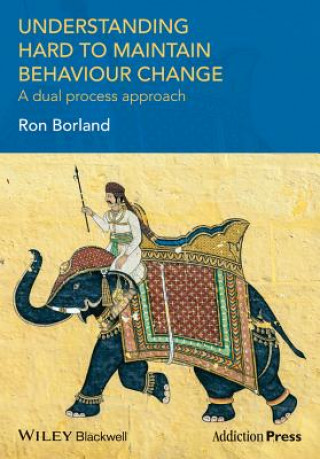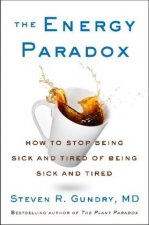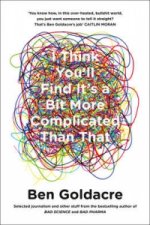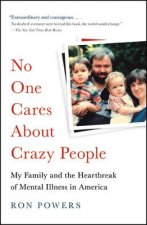
Kód: 04951679
Understanding Hard to Maintain Behaviour Change - A Dual Process Approach
Autor Ron Borland
The book presents an integrative theory of hard-to-maintain behaviours, which includes hard-to-reduce or eliminate behaviours such as smoking and other drug use, overconsumption of food or unsafe sex, and hard to- sustain behaviou ... celý popis
- Jazyk:
 Angličtina
Angličtina - Vazba: Brožovaná
- Počet stran: 252
Nakladatelství: John Wiley & Sons Inc, 2014
- Více informací o knize

1895 Kč

Skladem u dodavatele v malém množství
Odesíláme za 10-14 dnů
Potřebujete více kusů?Máte-li zájem o více kusů, prověřte, prosím, nejprve dostupnost titulu na naši zákaznické podpoře.
Přidat mezi přání
Mohlo by se vám také líbit
-

Skip*Beat!, Vol. 12
213 Kč -

Vascular Disease
3180 Kč -

Racial Politics in Contemporary Brazil
2785 Kč -

RNA Biology - An Introduction
1995 Kč -

Stopping the Brain Drain of Skilled Veteran Teachers
2473 Kč -

Skills For Life
666 Kč
Darujte tuto knihu ještě dnes
- Objednejte knihu a zvolte Zaslat jako dárek.
- Obratem obdržíte darovací poukaz na knihu, který můžete ihned předat obdarovanému.
- Knihu zašleme na adresu obdarovaného, o nic se nestaráte.
Více informací o knize Understanding Hard to Maintain Behaviour Change - A Dual Process Approach
Nákupem získáte 190 bodů
 Anotace knihy
Anotace knihy
The book presents an integrative theory of hard-to-maintain behaviours, which includes hard-to-reduce or eliminate behaviours such as smoking and other drug use, overconsumption of food or unsafe sex, and hard to- sustain behaviours such as exercise and sun-safe behaviours. Most of the examples come from the author's work on tobacco smoking, but it is relevant to anyone who is concerned to understand why some forms of desirable behaviour are so hard to achieve, and to those trying to help people change. It also has important implications for public health campaigns and for the development of policies to nudge behaviour in desirable ways. Current ways of thinking about health behaviour change are seriously limited. Simple rationality-based models are insufficient. Advances in neuroscience are establishing the importance of affective (emotional) responses as determinants of behaviour. However, while these can sometimes be influenced by rational processes, this influence is only partial and, for many, insufficient to allow unconflicted pursuit of what we believe is in our best interests. The theory the book elaborates, CEOS theory, explains how behaviour is jointly determined by the Context in which the person lives and two interrelated elements of internal function which it calls the Executive and Operational Systems. The key determinants of the latter are the influences of what is called the Operational System, which represents the parts of human functioning that we share with infrahumans. It responds to what is happening in the moment and controls the means by which we act on the world. The Executive System is based on linguistic models that are references to conceptual ideas of what could be; it is the well spring of our capacity to act with foresight. The theory helps us understand why determinants of the initiation of attempts to change behaviour differ from those that influence the long-term success of those attempts. It sees the former as largely driven by executive processes and thus amenable to theorising around rational, expectancy value models, while maintenance of change is more affected by particular kinds of experiences associated with trying to adopt the new pattern of behaviour. This book follows a recent trend in theorising about behaviour change by taking a dual-process approach. Related theories include Nudge, a theory with which it shares several key elements around the importance of more effective communication and targeted environmental changes as strategies for change. The book provides readers with frameworks to: determine whether a "hard-to-maintain" behaviour is a result of the skills needed to perform it, its reinforcement history, the way the person thinks about it, the context, or some combination of these; better integrate cognitive and behavioural change strategies, including emergent strategies related to mindfulness and acceptance, plus novel ways of retraining operational processes; understand the different nature of challenges for behaviours where multiple attempts are typically required before the desired behaviour pattern is sustained; better understand the role of feelings and emotions as influences on behaviour; understand the limits of environmental factors to determine change; and understand the limits of self-control and willpower. Thoughtful practitioners will find the book extremely useful in trying to work out better ways to help their clients and to challenge them to review some of their current orthodoxy.
 Parametry knihy
Parametry knihy
Zařazení knihy Knihy v angličtině Medicine Medicine: general issues Public health & preventive medicine
1895 Kč
- Plný název: Understanding Hard to Maintain Behaviour Change - A Dual Process Approach
- Autor: Ron Borland
- Jazyk:
 Angličtina
Angličtina - Vazba: Brožovaná
- Počet stran: 252
- EAN: 9781118572931
- ISBN: 1118572939
- ID: 04951679
- Nakladatelství: John Wiley & Sons Inc
- Hmotnost: 396 g
- Rozměry: 244 × 169 × 13 mm
- Datum vydání: 31. January 2014
Oblíbené z jiného soudku
-

Glucose Revolution
462 Kč -

The Art & Science of Foodpairing
1042 Kč -

Encyclopedia of Bach Flower Therapy
716 Kč -

Nutrition and Physical Degeneration
867 Kč -

China Study: Revised and Expanded Edition
357 Kč -

Gut
254 Kč -

Energy Paradox
638 Kč -

It's All in Your Head
306 Kč -

Nutrition and Physical Degeneration
1021 Kč -

Manual of Dietetic Practice 6e & Dietetic Case Studies Set
3679 Kč -

Close Your Mouth
328 Kč -

Body Awareness as Healing Therapy
349 Kč -

Bio-identical Hormones and Telomerase
589 Kč -

Inner Level
306 Kč -

Causal Inference for Statistics, Social, and Biomedical Sciences
1704 Kč -

Integrative and Functional Medical Nutrition Therapy
3927 Kč -

Nutrition for Sport, Fitness and Health
3312 Kč -

Marijuana Medicine
697 Kč -

Nutrition for Sport and Exercise - A Practical Guide
1537 Kč -

Mikronährstoff-Räuber: Metformin
131 Kč -

Oxford Handbook of Clinical Medicine
1527 Kč -

Rewire Your Anxious Brain
444 Kč -

Worry Trick
424 Kč -

Why We Eat (Too Much)
306 Kč -

Miller's Review of Critical Vaccine Studies
437 Kč -

Bella Figura
249 Kč -

Spillover
305 Kč -

Neurosonology and Neuroimaging of Stroke
4582 Kč -

I Think You'll Find It's a Bit More Complicated Than That
357 Kč -

Decision Modelling for Health Economic Evaluation
2036 Kč -

Cancer Revolution
393 Kč -

Healer Within
416 Kč -

Statin Nation
303 Kč -

Fundamentals of Clinical Trials
1702 Kč -

Medical Statistics at a Glance 4th Edition
1044 Kč -

Evidence-Based Medicine
1124 Kč -

Physics of Miracles
344 Kč -

Never Too Late to go Vegan
424 Kč -

MSM Miracle
245 Kč -

Protein Structure, Stability, and Folding
3313 Kč -

Gordis Epidemiology
1598 Kč -

Clinical Studies in Medical Biochemistry
1866 Kč -

Nutrition & Diagnosis-Related Care
5610 Kč -

No One Cares About Crazy People
473 Kč -

Health Behavior -Theory, Research, and Practice 5e
2290 Kč -

Galen on Food and Diet
1697 Kč -

Marketing Nutrition
3559 Kč -

Oxford Handbook of Applied Bayesian Analysis
2212 Kč -

Cure Tooth Decay
899 Kč
Osobní odběr Praha, Brno a 12903 dalších
Copyright ©2008-24 nejlevnejsi-knihy.cz Všechna práva vyhrazenaSoukromíCookies


 Vrácení do měsíce
Vrácení do měsíce 571 999 099 (8-15.30h)
571 999 099 (8-15.30h)